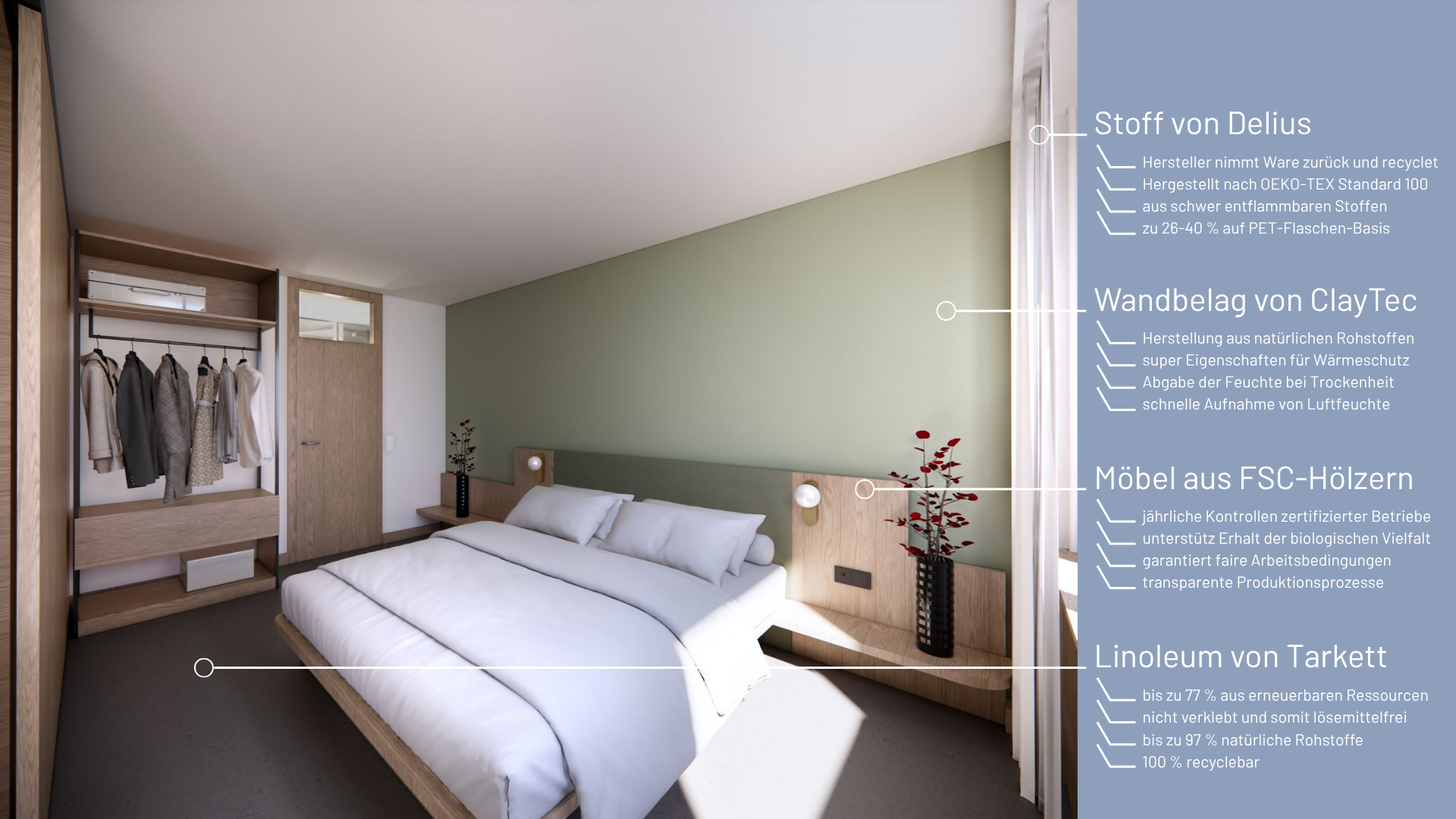Hotel interior design in Berlin and throughout Europe is being rethought: How modern project managers are focusing on sustainable materials, flexible room concepts, and smart technology
High-quality hotel interior design is undergoing a readjustment in 2025: Guests expect more than just design – they are looking for experiences with substance. The focus is on durable materials, circular economy concepts, and interior design that combines technological sophistication with sustainable thinking.
As a general contractor for hotel interior design, based in Berlin with projects in Germany, France, Italy, and other European countries, we create spaces that transcend trends. Those who design hotel rooms today are not just building for the present – but for a generation of conscious travelers. Five trends are particularly influential in hotel interior design this year.
1. Sustainable Materials in Interior Design: Quality with Impact
When it comes to hotel room interior design, it's no longer just the visible result that counts – but also the story behind it. Clay building panels, mineral paints, and linoleum floors with a positive climate footprint are not compromises, but statement materials that combine design, health, and environmental responsibility.
Best practice from Berlin: In a long-stay apartment, a concept was implemented together with Morgen Architekten that relies entirely on healthy, recyclable materials – certified, economically feasible, and aesthetically sophisticated. A prime example of sustainable interior design by a general contractor.
2. Flexibility in Focus: Planning Hotel Rooms Modularly
Hotel interior design in 2025 is evolving towards greater functional flexibility. Guest expectations are changing – as are the requirements for room typologies. Modular partition systems, multifunctional furniture, and reversible walls ensure long-term usage perspectives while simultaneously reducing resource consumption.
3. Biophilic Design & Natural Accents
Design principles such as biophilic design enhance the feeling of well-being through the targeted use of natural elements. These range from vertical green spaces to FSC-certified woods or ecological textiles – an integral part of a holistic hotel interior design that aims for a noticeable quality of stay.
4. Smart technology, discreetly integrated
Intelligent room control, energy-efficient lighting, and contactless check-in solutions will be standard by 2025 – but not for show. In upscale hotel interior design, technology is subtly integrated without disrupting the overall aesthetic. A well-planned general contractor for interior design already takes these requirements into account in the early planning stages.
5. Regional identity instead of global uniformity
"Sense of Place" is not a marketing term, but a central design criterion: Local materials, architectural references, and sustainable value chains build trust – not only with guests, but also with investors and operators.
Conclusion: Future-proof hotel interior design requires a clear vision
Sustainability in hotel construction doesn't begin with certifications – but with planning, material selection, and precision craftsmanship. As a general contractor for hotel interior design in Berlin, we combine design expertise with technical know-how and a clear objective: to create spaces that not only function – but also inspire.
Are you planning the interior design of a hotel?
Talk to us – we implement sustainable solutions in hotel interior design. Efficient, stylish, and future-oriented.

